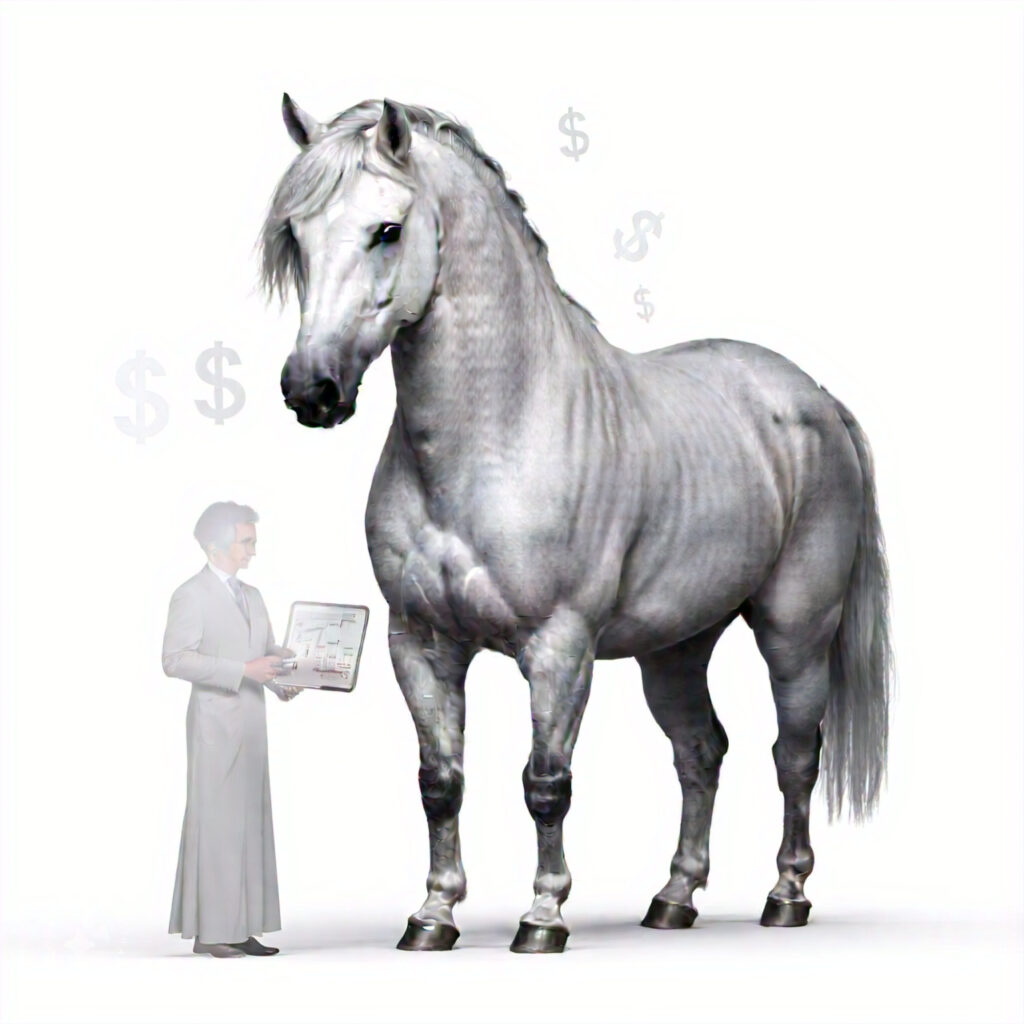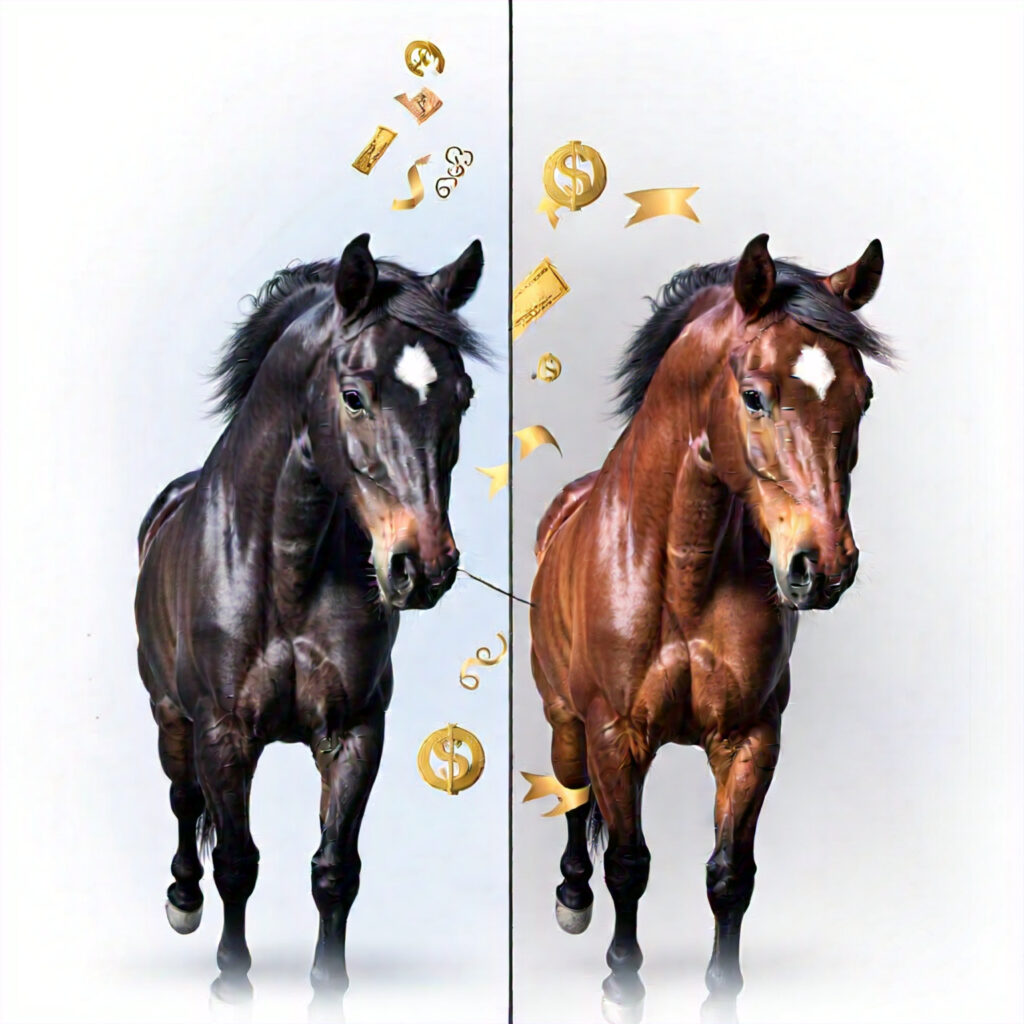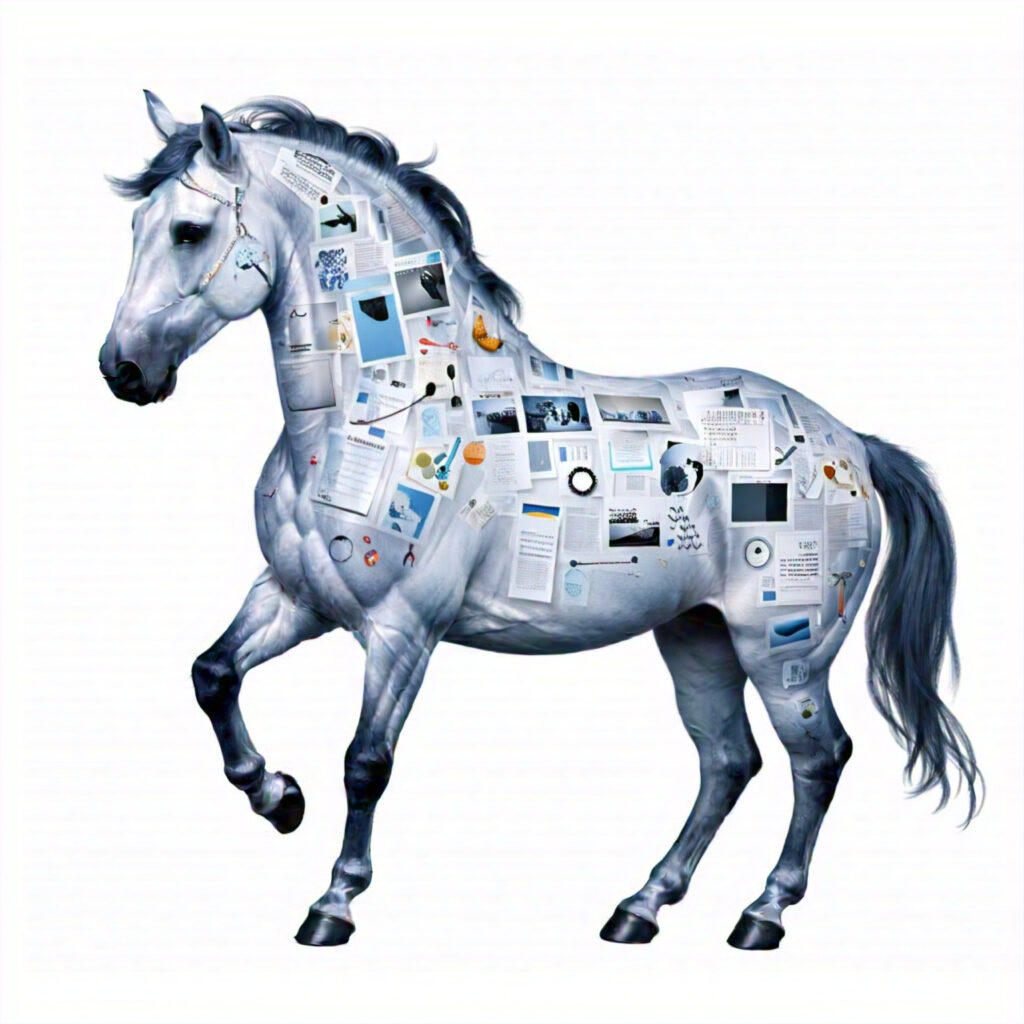What Determines Horse Value?
Horse value is determined by a combination of physical attributes, training level, health status, and performance history. The assessment includes breed characteristics, age, competition records, and documented medical history.
- Physical Characteristics: Breed, age, and conformation
- Health Status: Current condition and medical history
- Training Level: Skills, disciplines, and certifications
- Performance Record: Competition achievements and show history
Horse Value! Did you know that in 2000, a single horse named Fusaichi Pegasus sold for an astounding $70 million?
The world of horse valuation is filled with such remarkable stories, where passion meets investment in fascinating ways.
 Assessing Value: A Closer Look at Horse Appraisals.
Assessing Value: A Closer Look at Horse Appraisals.What makes one horse worth $700 and another worth $70 million? The answer lies in understanding the intricate dance between heritage,
ability, and market dynamics that shape a horse's value in today's evolving equestrian world.
When Alexander the Great first met Bucephalus, the horse that would become legendary, no one could tame the magnificent beast.
Yet young Alexander noticed something others missed – the horse was simply afraid of his own shadow.
This insight led to one of history's most famous human-horse partnerships, demonstrating how understanding a horse's true value goes far beyond mere price tags.
Essential Horse Value Insights
Smart Investment Tips
Professional horse valuation requires careful consideration of multiple factors including breed, age, and training level.
Health Maintenance
Regular veterinary care and proper documentation significantly impact a horse's long-term value.
Training Value
Consistent training and performance records can significantly enhance a horse's market value.
Introduction
The equestrian market in 2024 presents a fascinating landscape where tradition meets modern valuation methods.
From champion racehorses commanding eight-figure sums to beloved family companions,
understanding horse value has never been more crucial for owners, buyers, and enthusiasts alike.
Recent market analysis shows that while premium horse prices have remained stable, the middle market has seen significant growth,
with well-trained sport horses averaging between $30,000 to $75,000. This trend reflects growing interest in equestrian sports and recreational riding.
Consider these remarkable statistics:
- The most expensive show jumping horse, Palloubet d'Halong, sold for $15 million in 2013
- Well-trained warmblood horses typically range from €2,300 to €3,000 for leisure riding
- Competition horses with proven records can command prices from $100,000 to several million
Horse Value Analysis
Value Distribution by Factors
Training Level (40%)
Health Status (25%)
Pedigree (20%)
Competition Record (15%)
Value Factors Breakdown
Factor
Impact Level
Value Range
Professional Training
High
+30-50%
Health Records
Critical
+20-40%
Competition Success
Significant
+25-45%
Today's horse market reflects both historical legacy and modern innovation. From Bucephalus to current champions like Authentic,
who commanded a $75,000 stud fee in 2021, horses continue to captivate our imagination and investment interests.
As Winston Churchill wisely noted, "There is something about the outside of a horse that is good for the inside of a man".
This timeless connection between humans and horses continues to drive both emotional and financial value in the equestrian world.
Art & Value in the Equestrian World
Hans Haacke's "Gift Horse" sculpture explores the relationship between horses, wealth, and power through a unique artistic lens. This monumental work features a bronze horse skeleton with a live stock exchange ticker, symbolizing the intersection of historical equestrian traditions with modern financial markets.
Learn about George Stubbs' Horse Anatomy
View Whistlejacket at National Gallery
Horse Value History Corner
The fascinating journey of horse values through history reveals how these majestic creatures have shaped economies and cultures across centuries. Let's explore some remarkable milestones:
 Investing in the Future: The Value of Horse Training.
Investing in the Future: The Value of Horse Training.Record-Breaking Sales
The landscape of horse trading has seen extraordinary developments, with some notable records:
- In 2018, Justify made history by commanding $75 million after winning the Triple Crown
- Fusaichi Pegasus held the previous record at $70 million in 2000
- Shareef Dancer set an early benchmark in 1983 at $40 million
Evolution of Horse Trading
Horse trading has transformed dramatically since medieval times. During Richard the Lionheart's reign (1189-99), the first recorded racing purse was a modest £40.
Compare this to today's market where top competition horses regularly command six to seven-figure sums.
Horse Value Components
Physical Traits
Insurance Basic
Legality Cover
Medical Cover
Trial Rules
Important Papers
Registration
Health Certificate
Vet Records
Cultural Impact
The historical significance of horses extends beyond monetary value:
- The Tea Horse Road in ancient China became a crucial trade network
- The Mughal Empire's success relied heavily on cavalry strength
- Horse fairs at Haridwar and Pushkar became grand commercial hubs
"The Ancient Tea Horse Road Legacy" (https://www.nationalgeographic.com/history/article/tea-horse-road)]
Interesting Historical Facts
- Charles II became known as "the father of the English turf" and established the first national racing rules
- The earliest documented horse race in France occurred in 1651 as a wager between noblemen
- The Rig Veda praised the Ashwamedha yagna, highlighting horses' spiritual significance
The transformation from hunting prey to valuable asset marks one of humanity's most significant partnerships, with modern values reflecting centuries of careful breeding and cultural significance.
Understanding Horse Racing Value & Odds
Learn how to calculate and understand the relationship between win and place odds in horse racing. This comprehensive guide explains the mathematical principles behind odds calculation and market efficiency in horse racing valuations.
Racing Post Betting Guide
Horse Racing Calculators
Racing Statistics & Data
Value Building Blocks
A horse's value is built on several key foundations, much like pieces of a complex puzzle. Let's break down these essential components:
 A Picture of Health: The Importance of Equine Documentation.
A Picture of Health: The Importance of Equine Documentation.Physical Traits
Age plays a crucial role in determining a horse's worth. Horses typically reach their peak value around 10 years old.
For example, in racing, three-year-olds often command premium prices due to their competition potential.
Health remains paramount, with recent statistics showing a significant improvement in horse safety.
The latest HISA report reveals a 49% decrease in racing-related fatalities in 2024, dropping to 0.76 per 1,000 starts.
Understanding Horse Health and Maintenance
Breed Characteristics
Different breeds command varying price ranges:
- Warmbloods: €2,300 to €3,000 for leisure riding
- Premium breeds (Lusitanian, PRE, Friesian): Starting at €5,000
- Competition-level horses: Can exceed €100,000
Essential Horse Value Features
Value Assessment
Health Management
Training Excellence
Skills and Performance
Competition success significantly impacts value. For instance, Palloubet d'Halong sold for $15 million in 2013 due to exceptional show jumping abilities.
Recent 2024 racing statistics show top performers like Mystik Dan earning over $4 million in just six starts.
Training Level Impact
Well-trained horses with proven competition records command premium prices. The market particularly values:
- Consistent performance
- Good temperament
- Specialized skills in specific disciplines
Horse Value Comparison Guide
Value Factor
Entry Level
Mid Range
Premium
Price Range
$2,000-$5,000
$5,000-$25,000
$25,000+
Training Level
Basic Training
Show Experience
Competition Success
Health Records
Basic Vet Records
Detailed History
Complete Documentation
Breed Registration
Grade
Registered
Premium Bloodlines
Training and Performance Guide
Recent studies show that linear evaluation of traits has become increasingly important in breeding programs,
with many countries adopting standardized scoring systems to assess both conformation and movement characteristics.
Remember: A horse's value isn't just about individual traits, but rather how these elements work together to create an exceptional equine partner.
Learn More About Horse Training
Understanding Value in Horse Evaluation
Key Value Concepts:
- Understanding probability vs. market odds
- Long-term value assessment methods
- Form reading and analysis techniques
- Systematic evaluation approaches
Value Assessment Guide
Legal Aspects of Horse Valuation
Buying & Selling Guide
The Horse Value Detective Work
Professional horse appraisal is like solving a complex puzzle, requiring careful investigation and expertise. Let's uncover how the experts determine a horse's true value.
 Tracing Legacy: The Impact of Bloodline on Horse Value.
Tracing Legacy: The Impact of Bloodline on Horse Value.Physical Examination Process
Modern veterinary assessments have evolved significantly, incorporating advanced technology:
- Digital radiography shows a 95% accuracy rate in detecting potential issues
- Thermal imaging can spot inflammation 2-3 weeks before visible signs appear
- Blood work provides crucial health indicators with 99% accuracy
Understanding Pre-Purchase Exams
Evolution of Horse Value Through History
Ancient Times
Early Horse Domestication
First instances of horse valuation based on warfare and transportation capabilities.
Medieval Period
Knights and Warhorses
Horses became symbols of nobility and military power.
Industrial Revolution
Working Horse Era
Horses valued for their role in agriculture and transportation.
Modern Era
Sport and Leisure
Contemporary value based on breeding, sport performance, and recreational use.
Key Assessment Areas:
- Conformation analysis
- Soundness evaluation
- Dental examination
- Respiratory health
- Cardiovascular fitness
Performance Testing
According to the United States Equestrian Federation's 2024 guidelines, comprehensive performance evaluation includes:
- Movement assessment under saddle
- Free jumping capabilities
- Temperament testing
- Discipline-specific skills evaluation
Recent studies show that 78% of successful performance horses passed standardized testing protocols before sale.
Documentation Review
Essential paperwork verification includes:
- Registration papers
- Competition records
- Health certificates
- Training documentation
- Breeding records
Equine Documentation Standards
Modern Appraisal Tools:
- Digital scoring systems
- Video analysis software
- Performance tracking apps
- Medical history databases
According to The Horse Journal (2024), professional appraisers now use standardized scoring systems that consider over 50 different factors, leading to more accurate valuations.
Expert Tip: Always request a comprehensive pre-purchase exam from a qualified veterinarian.
http://justoborn.com/horse-value/
No comments:
Post a Comment